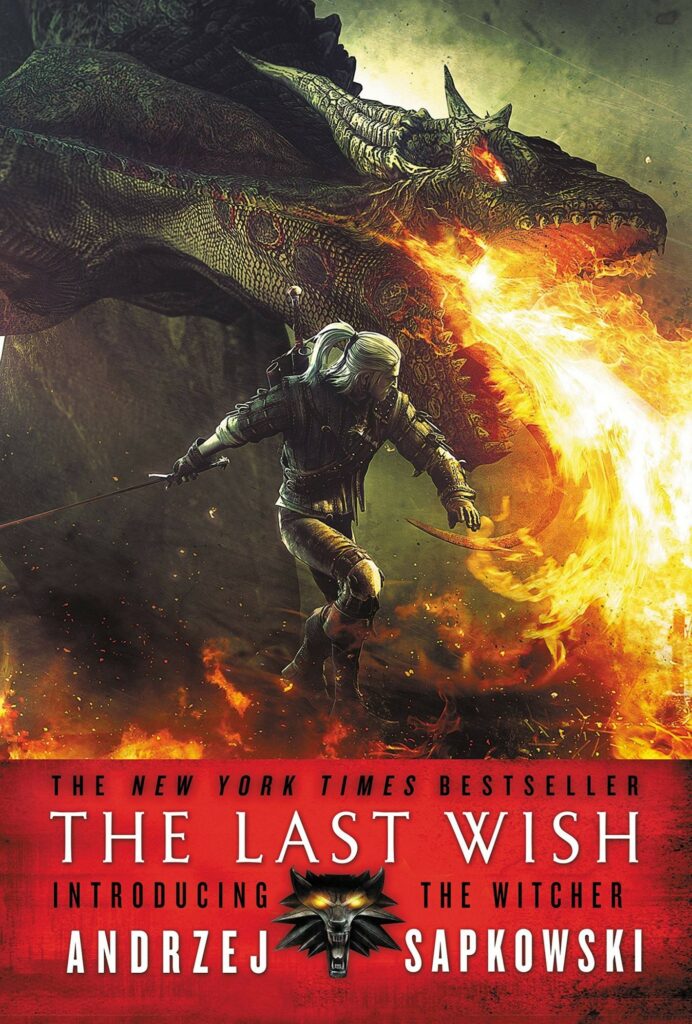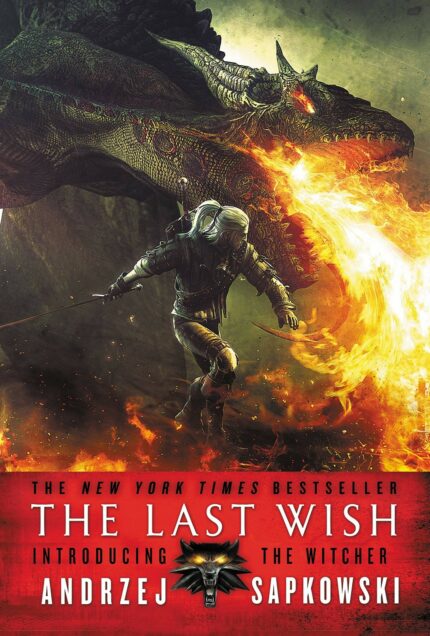The Last Wish (The Witcher, #0.5), by Andrzej Sapkowski

The Last Wish by Andrzej Sapkowski
My rating: 5 of 5 stars
I’ve first read “The Last Wish” in 2011. It was recommended to me by my friend Ingmar (who still has to read it, I suppose!) who – as it turned out later – used me as a guinea pig for books he intended to read but didn’t know if he would enjoy them and, thus, enticed me into reading them first.
Little did that scoundrel know that he had involuntarily introduced me to what is today one of my favourite fantasy book series.
It took a few years to really set in, though, because while I enjoyed “The Last Wish” well enough, at the time it was a three-stars-read to me – which means “it was ok’ish but nothing special”.
Nevertheless, I wanted to read more about that strange man, a witcher actually, who hunts monsters for a living. Unlike some other heroes in fantasy, Geralt is not a killer-for-hire and he won’t indiscriminately slaughter any non-human but consider them first – and sometimes confuse them:
“The monster shifted from one foot to the other and scratched his ear. “Listen you,” he said. “Are you really not frightened of me?”
– “Should I be?””
In Geralt’s open-minded world, “monsters” aren’t necessarily evil and if they aren’t, they don’t have to fear him because he’s more likely to sit with them and drink instead of mindlessly murdering them. A commendable approach. In other cases, Geralt may try to lift the curse or enchantment that originally caused the change into a monster.
If Geralt really has no choice but to kill, Sapkowski in turn allows even despicable monsters some degree of dignity (or maybe some remnants of former humanity?) which is something rarely seen in contemporary fantasy:
“She turned—and Nivellen forced the sharp broken end of a three-meter-long pole between her breasts. She didn’t shout. She only sighed.”
Geralt himself isn’t unaffected either: “The witcher shook, hearing this sigh.”
And in such rather unconventional ways, Sapkowski almost playfully and gracefully explores topics like true love, the monstrosity of man, the nature of evil and choosing between evils. Especially the latter is something that I had – regrettably – forgotten about because many of us should subscribe to the witcher’s philosophy:
“Evil is evil, Stregobor,” said the witcher seriously as he got up. “Lesser, greater, middling, it’s all the same. Proportions are negotiated, boundaries blurred. I’m not a pious hermit. I haven’t done only good in my life. But if I’m to choose between one evil and another, then I prefer not to choose at all. Time for me to go. We’ll see each other tomorrow.”
I’m not going to “see” Geralt tomorrow because before I read the next book of the series, I want something new and exciting but I’m as certain that I’m going to pick up the next book rather sooner than later.
I wholeheartedly recommend reading Geralt’s adventures to anyone who is even remotely interested in fantasy.
P.S.: At the beginning, when I talked about my first “encounter” with Geralt I neglected to mention I read the German translation at the time. Possibly because the German translations were publicised prior to the English ones. In fact, I started this second reading in German as well but – after having played the Witcher computer games in the meantime – found that I wanted the names and terms in their English variants even though I very slightly favour the German translation over the English one. So if you prefer reading in German, this book is also available as “Der letzte Wunsch”.
View all my reviews
